Melodies of Ancient China
By Nadia N.
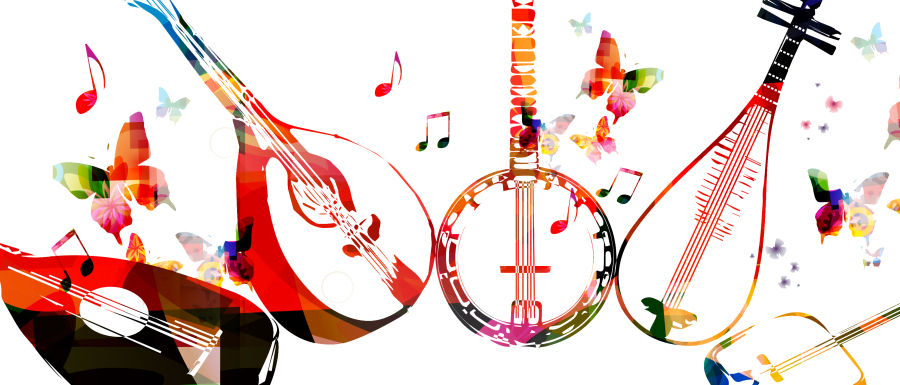
“宫、商、角、徵、羽”,说起这五音,你一定知道我们要聊一聊中国音乐了。中国音乐在世界上独树一帜,具有浓郁的东方特色。它不仅历史悠久、流传千载,更和中国文化的发展息息相关。对中华文化有着深远影响的儒家先师孔子不仅是伟大的思想家、教育家,也是一位杰出的音乐家。他在齐闻《韶》乐,非常欣赏,“学之,三月不知肉味”;他曾“正乐”,经他整理,《诗经》音乐才“雅颂各得其所”。孔子不仅仅是学习音乐技能,而且是从音乐学习中领悟人生。他认为音乐在教育中有着极为重要的作用,一个人全面发展,不仅需要智慧、勇敢,而且必须“文之以礼乐”,所以他说:“兴于诗,立于礼,成于乐”(《论语•泰伯》),他认为音乐是人生修养的最后完成阶段。可以说,到了孔子,才有了对音乐最高艺术价值的自觉。
他非常重视音乐中教化功能:孔子说音乐可以“移风易俗”、“以善民心”,“故不能无乐”,认为音乐有助于政治上的教化,更进一步认为音乐可以提升人的道德修养,达到人格的更高境界。
反观我们听到的中国音乐,多平和、深沉、大气而内敛。这种特别的风格和中华文化中的谦恭礼让、以和为贵及追求修身养性的方向不谋而合。中国的音乐主要有戏曲、独奏、合奏几种表演形式。戏曲表演者全凭记忆唱出所有乐曲,历史悠久;独奏在中国音乐中更为常见,一把二胡或一副古筝就可以演奏出策马奔腾或高山流水。后来中国音乐的发展也结合了西方音乐的文化和影响。
欣赏中国音乐,你听到的,不只是唱段或旋律,更是悠悠传承千年的文明。
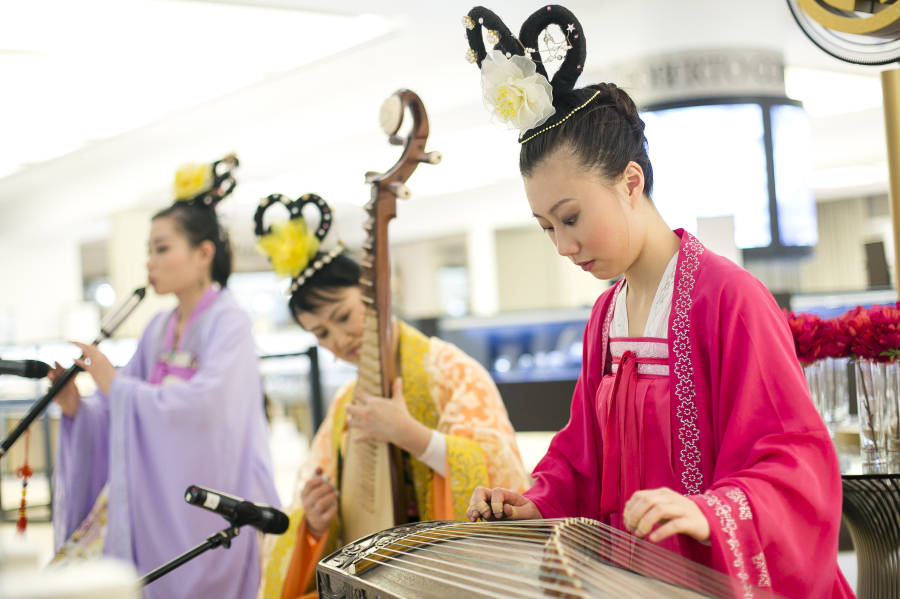
Chinese traditional music is magnificent and so different from anything else we usually hear. It’s simplicity and, yet, elegance is what makes this music so easy to listen and enjoy.
Chinese traditional music is as diverse as the country itself. With time Chinese music has developed vast number of styles and ranges from traditional music for the elites to ethnic and folk music.
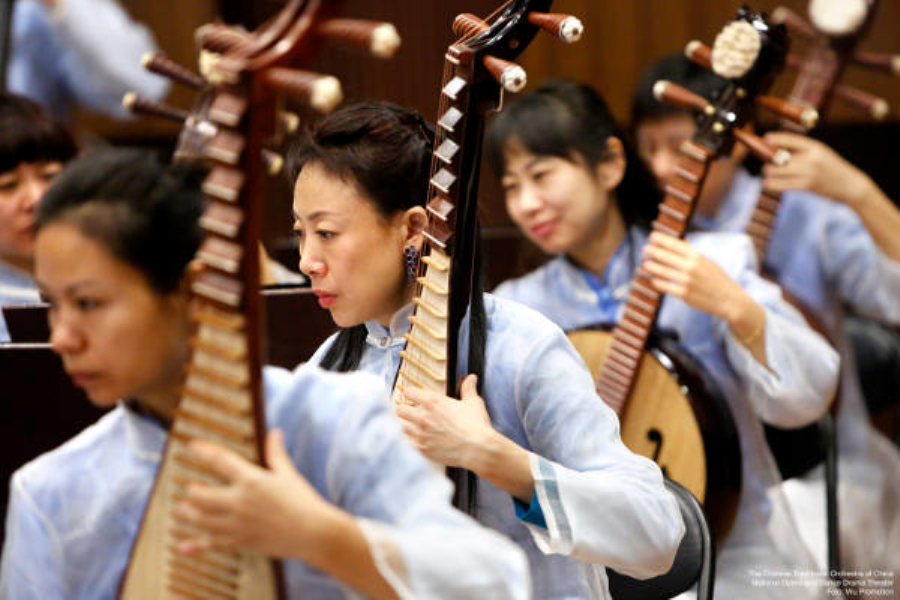
Doubtlessly, music has been around mankind since the dawn of times and in China people started practicing music so long ago that nobody even remembers when. But the music gained its real significance and started to play a major role in society thanks to Confucius, the greatest Chinese philosopher and politician. He lived around 2500 years ago - however his teachings and principles of living still influence Chinese society in a great way. Confucius, being one of the most educated people of his time, stated that “to educate somebody, you should start with poems, emphasize ceremonies and finish with music.” And, indeed, he put music as the educational milestone even before calligraphy and mathematics. By himself, Confucius was able to play flawlessly 8 musical instruments. During the Zhou Dynasty, time of Confucius, purpose of music was very different from other countries where it was used for entertainment and pleasure. At that time in China, music was a powerful instrument of uniting and guiding the society.
Confucius believed that ideal society was to be governed by rituals and ceremonial functions and not by law and politicians and hence music played a vital role. So musicians and composers had a very important mission: accomplish political goals and set the right tone for the entire society. That might be the very reason why traditional Chinese music is so precise, elegant, calm and tranquil - to model behavior and mood during various rituals and ceremonies.
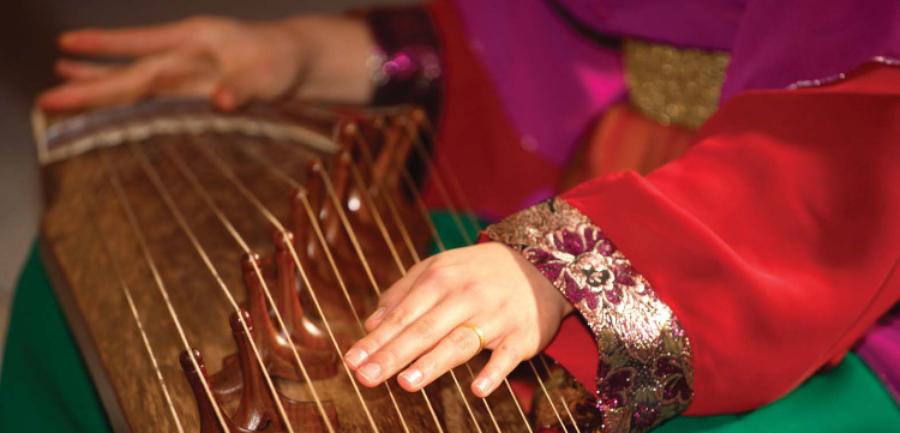
Chinese traditional music always follows the Confucian doctrine that has 4 main parts: grand entry, technical finesse, smoothly continuous and the grand finale.
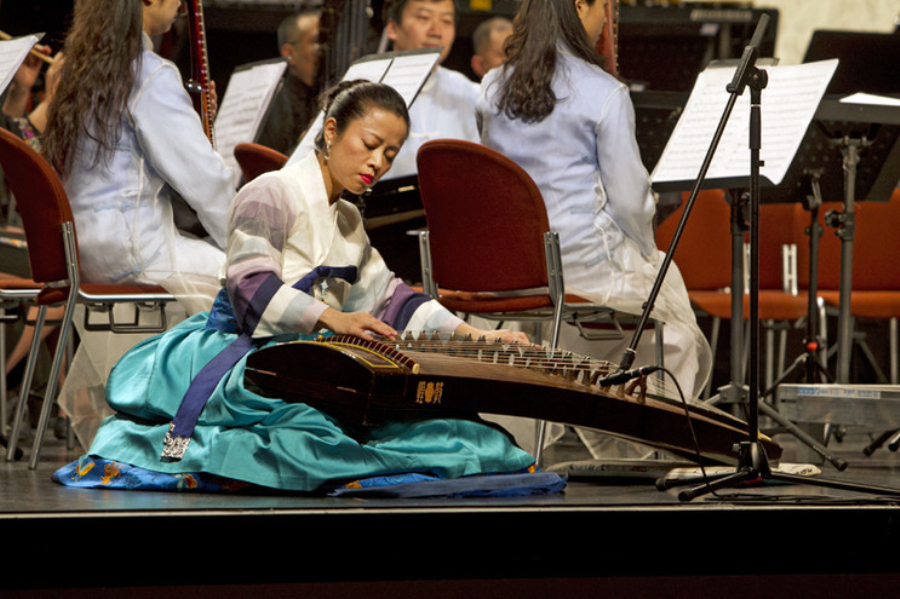
As for the styles of music in China, it overall can be divided in 3 major parts: Chinese opera, ensemble music and solo performance.
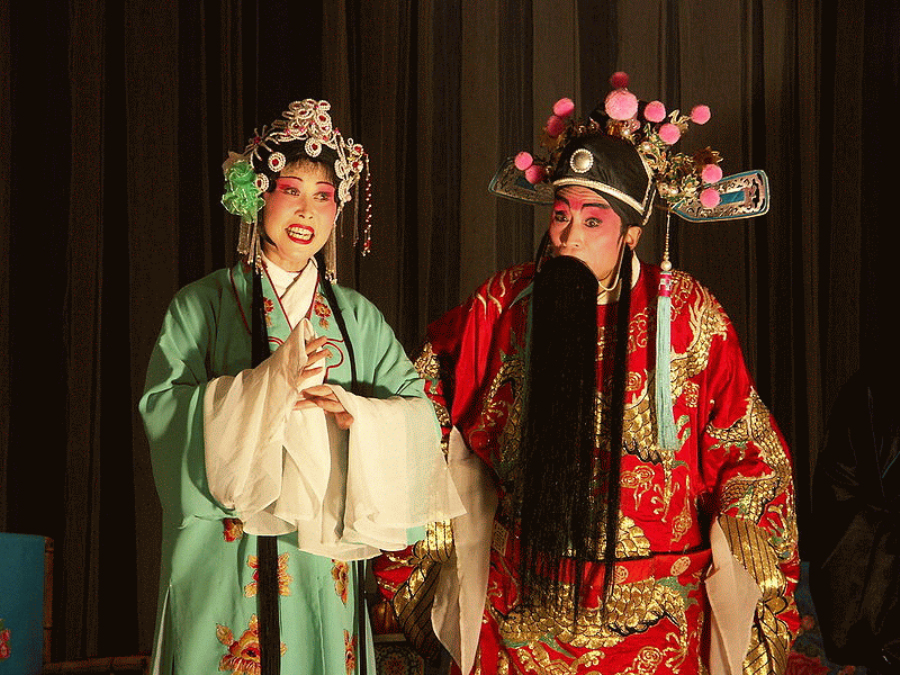
Chinese opera started, as was taught by Confucius, with the purpose of educating and guiding the masses. Plots and stories that Chinese opera is based on are often political, educating and with obvious morale. However, with time passing by, Chinese opera became a kind of entertainment. Rhythm of Chinese opera is very hard to follow and understand for Western people - absence of melody, changing of rhythms and tempo are often very difficult to follow. Traditionally, there are 7 musicians for performing and accompanying the actors during the Opera. Surprisingly, musicians don't use any note scripts throughout the performance, they play by memory. This little orchestra usually includes erhu and other string instruments as well as gongs, wood clappers and wind instruments. In contrary with many other opera styles where instruments usually accompany the singing, in Chinese opera musical instruments are also used to imitate animal sounds and create some “special sound effects”.
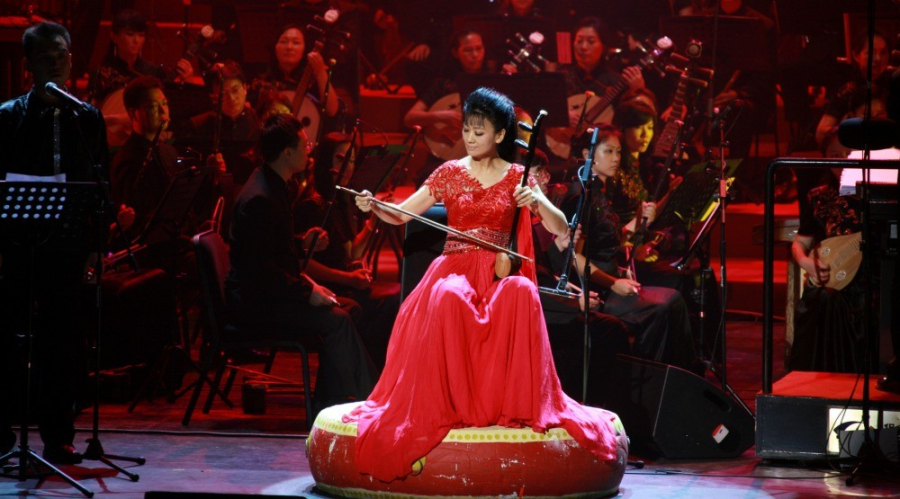 Solo performances are very common in Chinese tradition. The reason for that is very simple: distinctive melody is a rare guest in Chinese traditional music. The performances are very abstract and you might think it is simply an improvisation.
Solo performances are very common in Chinese tradition. The reason for that is very simple: distinctive melody is a rare guest in Chinese traditional music. The performances are very abstract and you might think it is simply an improvisation.
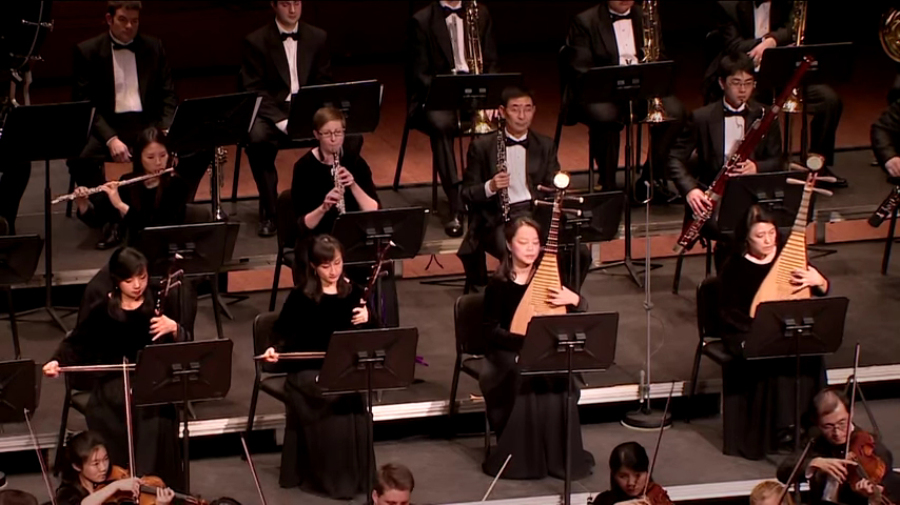
While solo musical performances are much more common, when speaking of Chinese traditional music, orchestra performances can also be found. Nowadays, Chinese musicians often adopt Western musical styles and use instruments that are traditional for Western orchestras - pianos, violins, etc. Even if the melodies can be repeated on these “new” for Chinese traditional music instruments, the charisma and style can almost be lost. But, in China, where often Western style of anything is believed to be more “elegant”, theatre performances of traditional music can be way “not Chinese”.
Chinese musicians use various instruments while performing their masterpieces, and, contrary to the common idea there are plenty of them. The most popular ones are, of course, various string instruments and the most popular and beloved instrument in China is Erhu. This instrument is the always a part of Chinese opera music and, also, sometimes is used for solo performances. Erhu is a violin-like instrument and is played with a bow. The sound of Erhu might be very unusual for visitors in China, and its sound is usually described as being “irritating”. In fact, when played professionally, Erhu can imitate horses, birds and even Chinese singing itself!
---END---